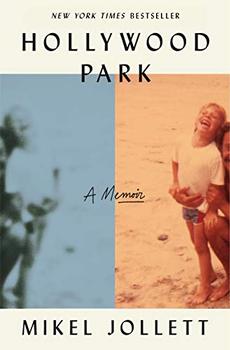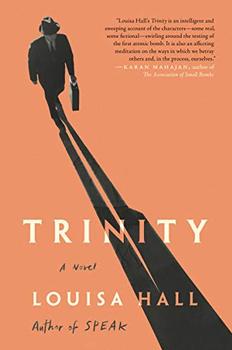Summary | Excerpt | Reviews | Beyond the book | Read-Alikes | Genres & Themes | Author Bio

Growing Up in America's Secret Desert
by Karen PiperThe Naval Air Weapons Station at China Lake near California's Mojave Desert is the navy's largest land base, roughly the size of Rhode island, and the central setting of A Girl's Guide To Missiles. Karen Piper moves there as a child in the 1970s when her father, an engineer, is hired to help design the sidewinder missile (a Vietnam War-era weapon still in use today), and from that moment forward it becomes an all-consuming force in her life. The memoir chronicles how Piper, her mother and her sister are all drawn into working at the facility. When Piper leaves for college her family stays on the base, and the narrative shifts focus to recount her struggles to reconcile her military upbringing with her adult life.
Piper vividly blends the personal and the historical, capturing the cultural changes within America along with those in her own life and family. This grounding in American history lends the memoir emotional resonance and a broader appeal. She achieves much of her thematic success through echoing ideas across her narrative. The image of a missile rolling off course becomes a metaphor she uses to discuss pivotal moments in her life. She grows up in a deeply religious household, and her resulting suspicion of zealotry informs her discussion of cults, UFOs, eco-terrorism, Amway, and, of course, growing up on China Lake.
The title of the memoir screams that this is a feminist piece, suggesting that Piper acts as a guide to girls. Instead, the memoir depicts a young woman deciding what to believe in, who to put her faith in, and how she wants to live her life. This is certainly feminist content, but there were parts of the narrative impacted by gender that would have benefited from additional reflection. The book is more effectively a coming-of-age story with the occasional ideological statement. Piper critically examines PTSD, environmentalism, love, and religion. She is at her best recounting stories that speak for her: watching her mother cry as her missiles shoot down Libyan pilots, cheating on tests at her Christian high school, or sitting in on an Amway rally. The prose is snappy and engaging, and Piper's voice is present and consistent throughout.
The memoir features seven parts (with several chapters in each part) that split Piper's life into neat segments. Each part opens with a "Missile Guidebook" tip, usually a cheeky insult of America's love affair with missiles. Though some of the missile tips cleverly double as useful relationship advice ("Believe your mother when she says she has had experience with them. She can help."), they distract from the subtlety Piper uses to argue against the military industrial complex in the rest of the memoir. Rather, they seem like a half-hearted attempt to tie the titular "guide" concept into the narrative. The chapter conclusions, brief paragraphs foreshadowing later events, can be repetitive, and prevent the chapters from melding smoothly into one another. One of the most jarring transitions occurs between Parts Four and Five, where the focus shifts from Piper's sister's near-death experience in childbirth to overhearing a romantic interest discuss blowing up a dam. However, when the writing flows well between chapters and sections, the memoir is engrossing.
Karen Piper succeeds in both telling the story of her youth and commentating on the pervasive ideologies that shaped her. Sometimes the prose needs stronger transitions, but the stories she tells are engaging and highlight her unique perspective.
![]() This review was originally published in The BookBrowse Review in August 2018, and has been updated for the
September 2019 edition.
Click here to go to this issue.
This review was originally published in The BookBrowse Review in August 2018, and has been updated for the
September 2019 edition.
Click here to go to this issue.

If you liked A Girl's Guide to Missiles, try these:

by Mikel Jollett
Published 2022
Hollywood Park is a remarkable memoir of a tumultuous life. Mikel Jollett was born into one of the country's most infamous cults, and subjected to a childhood filled with poverty, addiction, and emotional abuse. Yet, ultimately, his is a story of fierce love and family loyalty told in a raw, poetic voice that signals the emergence of a uniquely ...

by Louisa Hall
Published 2019
From the acclaimed author of Speak comes a kaleidoscopic novel about Robert Oppenheimer - father of the atomic bomb - as told by seven fictional characters.
The silence between the notes is as important as the notes themselves.
Click Here to find out who said this, as well as discovering other famous literary quotes!
Your guide toexceptional books
BookBrowse seeks out and recommends the best in contemporary fiction and nonfiction—books that not only engage and entertain but also deepen our understanding of ourselves and the world around us.